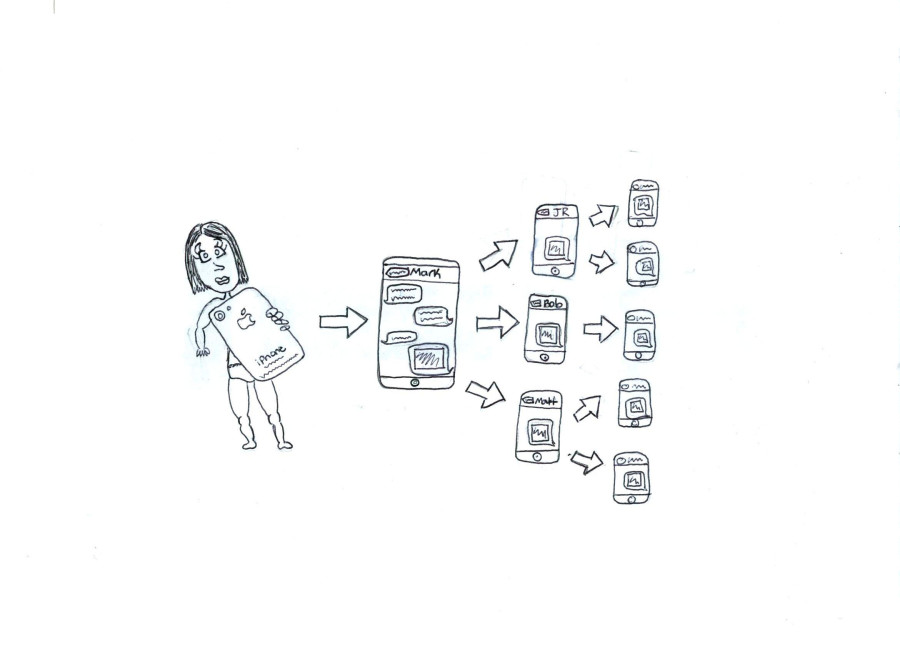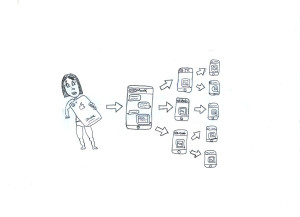Using your phone to embarrass yourself and break the law at the same time has never been so simple. Just take naked pictures of yourself posing provocatively, text them to the intended recipient(s) and watch in horror as everyone in your school suddenly has that picture and police officers are taking you to jail for child pornography.
Sexting has unfortunately become more effortless and more popular as technology advances, but this abuse of resources needs to change. People must realize the severe consequences for doing something as simple as taking a picture. Besides the embarrassment when pictures go public, there are a lot of other reasons people, especially teens, should rethink sexting.
According to PCs N Dreams’ website, 44 percent of teenagers say they know sharing sexually explicit texts with other people is very common. That means those pictures are not private. No matter how much senders trust the recipients, they must be cautious because they may not trust the recipients’ friends. Teenagers need to realize once they send a picture, it can go to anyone and everyone.
“I think relationships and friendships are very important experiences in high school,” Melissa Pikul, dean of students, said. “It’s easy for us to say, ‘Don’t worry about it. That’s not the person you are going to marry,’ but the reality is students believe they are in love and things would never backfire. Unfortunately in younger relationships, things become spiteful within hours of a breakup. It can get pretty ugly. We’ll have situations that start at the end of a school day and by the next day a student’s reputation is ruined.”
Besides having social consequences, sexting is very dangerous from a legal perspective, especially for teenagers. Federal law prohibits “the production, distribution, reception, and possession of an image of child pornography using or affecting any means or facility of interstate or foreign commerce,” according to the US government’s Justice website. This basically means it is illegal to make, send, accept, or have any sexually explicit pictures of someone under 18, which encompasses everything teenagers do while sexting. Sending a naked picture of yourself is not worth having a criminal record follow you for the rest of your life.
Teenagers need to understand the idea of permanence. Even though 66 percent of teenage girls and 60 percent of teenage boys sext to be “fun or flirtatious,” according to PCs N Dreams’ website, they probably will not think it is fun when they see their picture circulating the school. Even apps like Snapchat are not 100 percent foolproof because of the ability to screenshot and the new app, Snap Save, which lets people save Snapchats without notifying the sender.
“Just don’t do it. It’s not worth it,” Pikul said. “You don’t know who your best friends, boyfriends, girlfriends, or who your acquaintances versus friends will be. You cannot predict the future and you simply cannot trust the internet. It’s not even a matter of not trusting, it’s just that those things are permanent. They are stored somewhere at some point. Why risk something coming back to haunt you?”
There is no real upside to sexting. Teenagers need to reconsider sexting because it could lead to embarrassment, ruin one’s reputation, and even land someone in prison. Even though in this day and age teens mainly communicate through technology, intimate communication is one of those things that should still be done in person.


